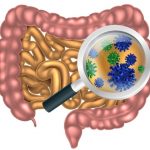fasdf@sadf.tu
Salmonella outbreak due to consumption of seaweed
The Hawaii State Department of Health is investigating 14 cases of Salmonella infection on Oahu. The infection is linked to raw fish called limus Poke (a raw fish salad containing seaweed Limu).Seaweed is frequently served as a side dish at meals in the Pacific Islands and is a common component in the diet of many persons living in the Pacific Rim. Seaweed is often harvested at beaches, gathered in near shore waters, or purchased at local markets. Reported cases include both children and adults. All of the cases developed diarrheal illness from mid- to late October and four have required hospitalization. The tainted limu...
fasdf@sadf.tu
FSMA and the Produce Industry
How did the FSMA started There were three major events that drove FSMA(Food Safety News). In 2006 the large coli O157:H7outbreak linked to spinach, drove the produce industry to push for regulatory change. In 2007 the deliberate contamination of wheat gluten with melamine, resulted in dead and sick pets. This event got the attention of the Bush administration due to three factors: It was deliberate, it was in imported food, and it involved China. In 2008 the salmonella outbreak, traced back to peanut butter paste manufactured by Peanut Corporation of America, killed 9 people and sickened 714 others, some critically, across...
fasdf@sadf.tu
Ripple effect of Recalls due to Listeria Contamination
The potentially contaminated cookie dough with Listeria monocytogenes from Aspen Hills (Garner, IA) has resulted in a number of recallsincluding Chocolate Shoppe, Blue Bunny, Blue Bell, Nutrisystem , cookie dough bars, and Publix ice cream. It might cause additional because the cookie dough could be in dozens of secondary products on yet unnamed companies. The recall of Aspen Hills cookie dough went to 27 food manufacturing companies that had received the dough produced from July 15 through Sept. 30. Aspen Hills spokesman Jon Austin reported that the recall was voluntarily because “the company found lapses in its food safety system such as inadequate documentation...
fasdf@sadf.tu
The role of gut bacteria on health and diseases
The human gastrointestinal tract contains over 1,000 different types of bacteria. The role of the gut bacteria (microbiota) on health and disease is a subject of extensive research in recent years. As a result, our knowledge and understanding of their impact is rapidly growing. The articles “Role of the gut microbiota in health and chronic gastrointestinal disease: understanding a hidden metabolic organ” and “Rapidly expanding knowledge on the role of the gut microbiome in health and disease” discuss the impact of gut microbiota on Irritable bowel syndrome, inflammatory bowel disease, colorectal cancer, obesity and type 2 diabetes. Prebiotics (nutritional compounds used to...




